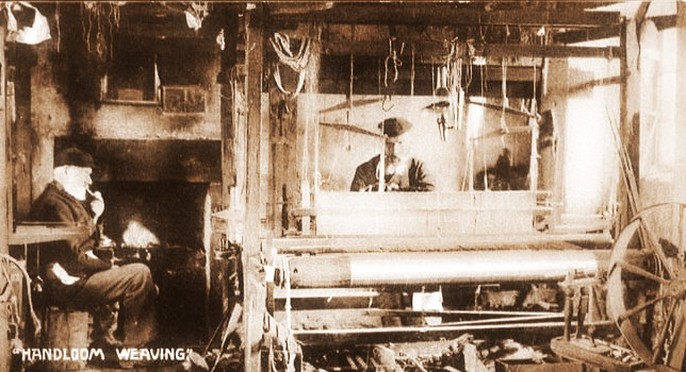"Still a cheery spirit is manifested among the people, who hope that things will soon take a turn, and console themselves by quoting the old saying - "It is never darker than just before day"."
The Dundee Courier of 19 October described trade as "very dull". It went on to say that "many hands are idle for want of employment" and although some had found employment in the potato harvest, this crop was not a good one and was now nearly complete, meaning that folk were keen to find work to do in their own home.
A new day did dawn and on 1 July 1864, the Dundee Advertiser stated that in Lundin Mill "this branch of our national industry is very healthy at present. Work is abundant and wages have advance of late." In fact this period must have been a real high-point as later in the same month, the same paper said that "here and at Largo, the weaving trade looks animated. Work has not been so plentiful for many years, and what is equally cheering, the wages of the operatives have considerably advanced of late."
"Huckabucks and sheetings are rife, and if one weaver could weave two webs at one time he would have no difficulty in obtaining work to perform. Many are, however, engaged at present at harvest work, and healthy rural labour being more desirable that indoor work, it will be after the potato lifting season before loom labour will be resorted to by most of our workers."
This bright spell was not to last and in 1868, the Courier of 25 May found that in Lundin Mill "work is very scarce in this village, and several of our best hands have had to go about idle for want of work for several weeks". It continued to say that Lundin Mill had long been known for the production of broad sheetings, dowlases and huckabucks, but that these are all very scarce presently and "many hands have left the loom for other kinds of employment".

 RSS Feed
RSS Feed
